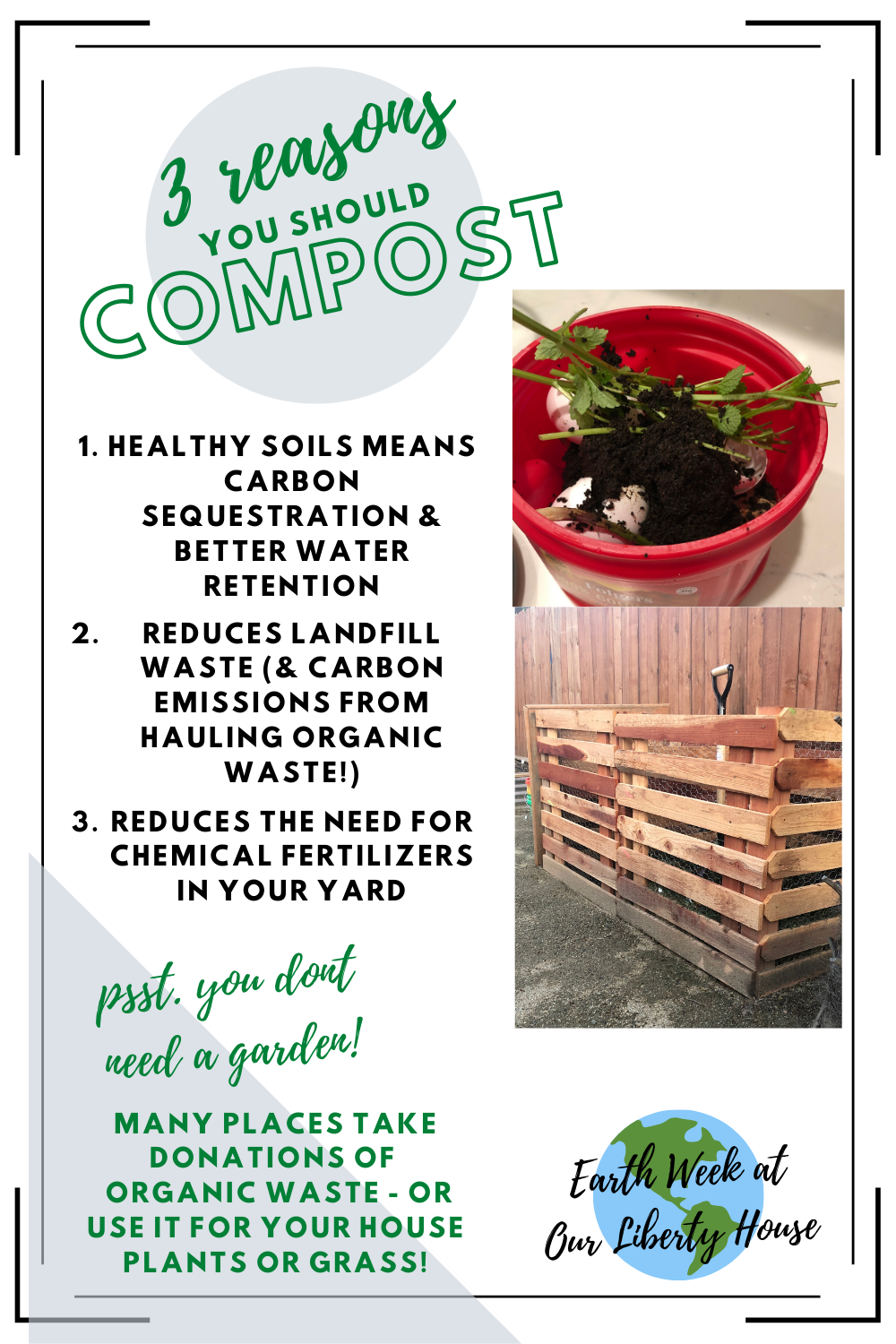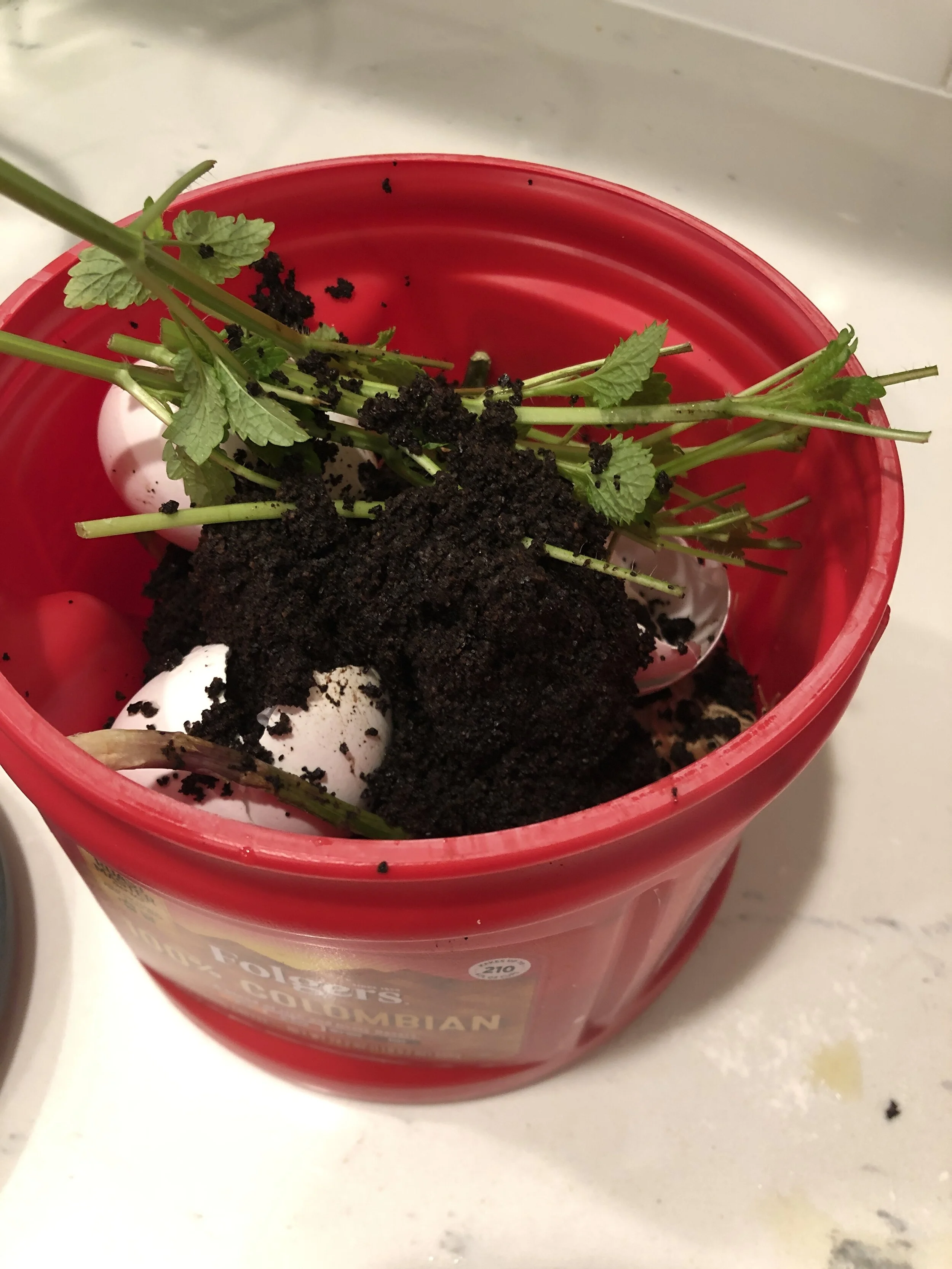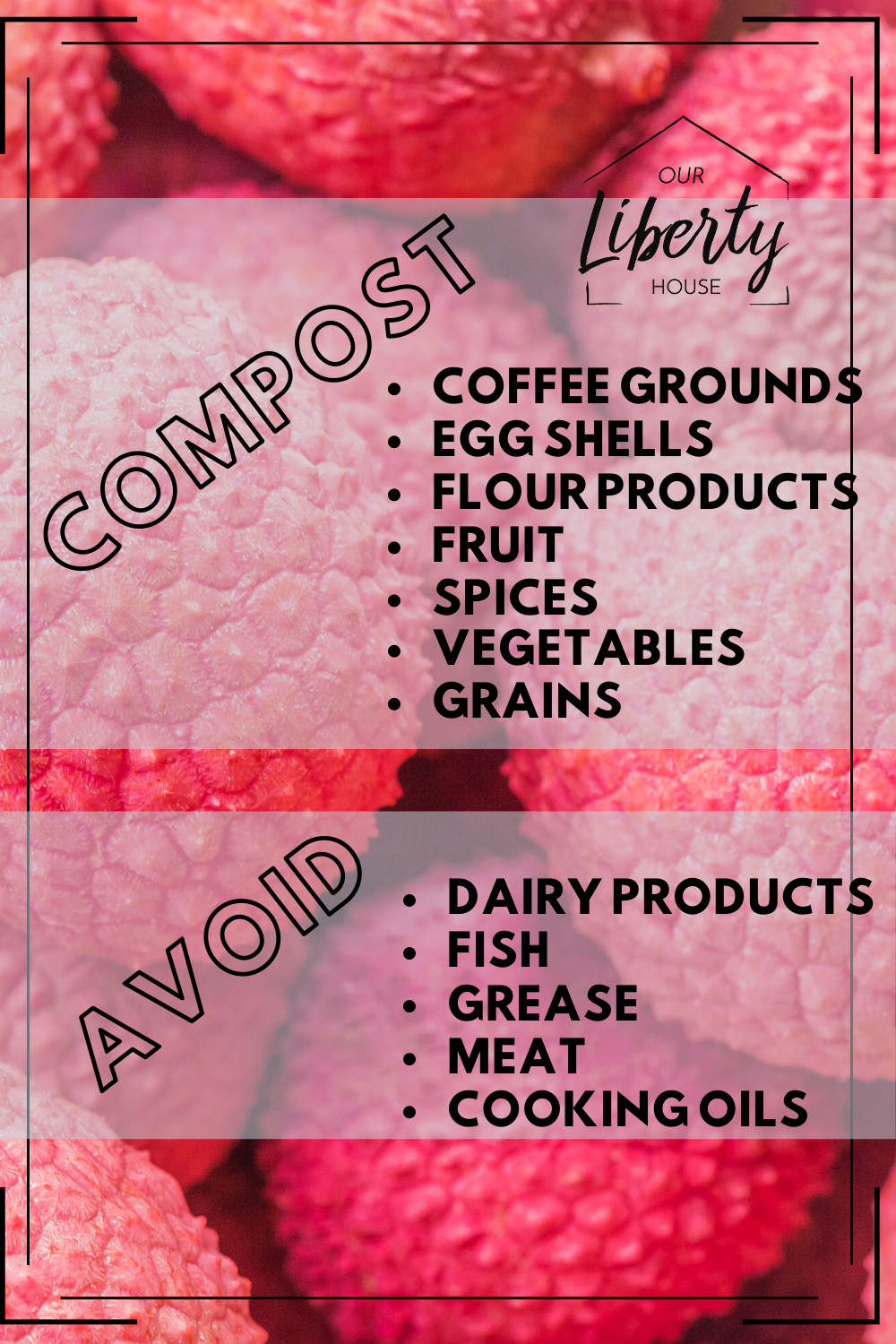Compost 101: The 5 Steps to Composting with Q&A
Please note this blog post contains affiliate links. By clicking and purchasing though these links we receive a small commission, at no additional cost to you. This helps us keep the lights on and continue to bring you new content!
Compost is literally one of our favorite topics. We find it so rewarding to give life back to our used food waste and feed our garden with it! I could go on an on, but I’ll dive right into it - first by explaining what compost is and why it’s the best thing you can start doing for the Earth. Enjoy!
What is Compost?
Compost is organic matter that has been decomposed in a process called composting. This is a process that basically recycles various organic material back into soil. This soil is often referred to as “black gold” by a gardener - it’s that good!
homemade compost from our suburban garden
Managing your home’s compost directly helps keep the Earth green.
Why?
Positive soil helps with carbon sequestration. Basically, if you can create healthy soil in your yard naturally, that soil will be able to store more carbon and release less into our atmosphere. An article published by the Earth Institute at Columbia University says it best:
“Fertile soils produce more food, promote biodiversity, hold moisture better, and are less susceptible to erosion, floods, nutrient loss, and desertification. More microbes in the soil enable plants to grow deeper root systems that allow them to tolerate drought better, and be more resistant to pests. Enhanced carbon in soils improves soil and water quality. These are all effects that will help society feed the growing global population and be more resilient to the impacts of climate change.”
To read the entire article, click here.
Reduces landfill waste. (And the carbon emissions it takes to haul that waste around).
Reduces the need for chemical fertilizers in your yard.
The 5 C’s to Composting:
So now that you know why composting is so good, here is our guide to getting started!
Create a place in your yard that can collect your green and brown organic waste. For us, this is a 3’x8’ dual wood enclosure - but can be smaller or larger depending on your organic waste output. There are also a number of compost container options you can purchase online. We recommend getting one, or building one, with at least two “containers”, so when one side is full and “cooking”, you have the ability to have another area that can collect.
Collect green waste from your kitchen scraps, brown waste from the yard, and add to your outdoor container. Without organic waste, there is no compost!
Care. Compost isn’t necessarily made on it own, unless you have a lot of time on your hands. To speed up the process, compost needs to be kept moist and stirred often which will keep it from going “cold”.
Cook. Once your container is full, stop adding to that particular bin and begin another bin as your “active bin”. The now “passive bin” needs to start the process of “cooking”. Continue to keep the cooking bin moist and stir regularly. Over time, you will start to see your organic material turn more into what looks like dirt. This is why it is particularly important to have a 2+ bin system. Letting the full one completely compost will give you what avid gardeners refer to as “black gold”.
Once a dirt-like substance is formed, you can use this in your garden or yard as compost! It is full of nutrients and a great way to add natural fertilizer to your plants without having to purchase a chemical-fertilizer.
Continue! You’ve done it! And I promise you the first go is the more difficult. You have successfully made the Earth a healthier place so keep at it!
Note: From the time you stop adding matter and allow your compost to, well, compost, it may take 3-6 months of stirring and keeping your compost moist to turn to soil.
Now that you know all the great benefits of composting, we thought it best to answer your Frequently Asked Questions about Composting!
Q: What’s the difference between green and brown waste?
A: Green waste refers to veggie scraps while brown waste refers to dead organic material (like leaves or dried up grass clippings). Think literal in terms of color. If your bin is stinky, try adding more brown waste.
Q: How much space do you really need?
A: This really depends on how much organic waste matter your household and yard produce. Composting can happen in a 5 gallon bucket or a warehouse. For a normal suburban yard (and you are a gardener), a 4’x8’ area of your yard will be plenty. If you don’t garden, or don’t have a big garden, we recommend purchasing a small bin online like either of these:
Q: Are worms necessary?
A: Worms are not necessary, but will actually arrive organically to your compost. Many gardeners choose to vermicompost solely with worms which is a completely different set-up. To read more about worm composting, check out our Beginners Guide to Vermicompost.
Q: How do I collect green waste?
A: In our kitchen we have a countertop bin that we collect our food scraps in. You can purchase fancy ones online or be like us and re-use coffee ground containers. Really, you just want something easy to clean, though the perk of a store bought one is getting a filter so the waste is less smelly if you forget to dump it right away.
Q: What do I want to collect vs. throw away?
A: For quality compost you want a mix of green and brown material. For us, our green material typically includes any vegetable or fruit scraps, coffee grounds, grass clippings and flower clippings. You do not want to compost meat scraps, hard pits like avocado and weeds.
Q: How do you collect compost without the smell?
A: Though you can’t get out of the smell completely, we recommend getting a compost bin for the house that has a charcoal filter.
Q: I don’t garden, should I still collect organic material for compost?
A: Yes! I want to say this again.. YES! There are many uses for compost outside of growing vegetables. For one, you can use this compost for the soil beneath your grass (which helps sequester carbon for the environment!). You can also use compost for you house plants, annuals or perennial beds. There are also many community gardens or local groups that would be more than happy to collect your organic material.
Q: What do you do when your pile “goes cold”?
A: If you pile goes cold or seems inactive, try getting it wet and stirring. If it doesn’t help it probably means your ratio of green to brown waste is off. For us, we usually lack brown waste. So try adding wood chips, dried grass clippings or other dried, dead material from your yard. If you like to be precise, we recently purchased this compost thermometer and LOVE it.
We hope this answered some of your questions on what composting is and why it’s so important! Please comment below with any additional questions and we would love to answer them.
If you’re not in a place that allows you to facilitate the full composting cycle there are a number of places that will happily collect your organic waste. If you are a vegetable gardener or even just a home-owner, we urge you to create a spot in your yard where you can compost your home’s organic material! This not only reduces the amount of trash that needs to be collected and drove to a dump, but will make your yard’s soil healthy which greatly impacts the Earth!
Happy Composting,
-L+B




